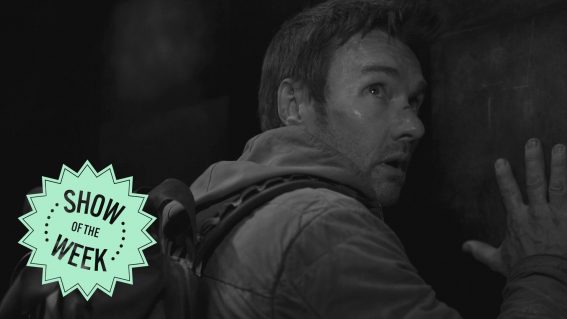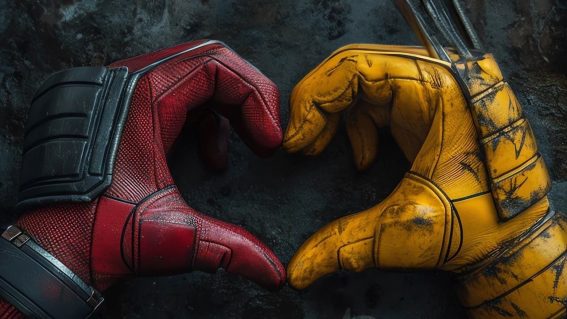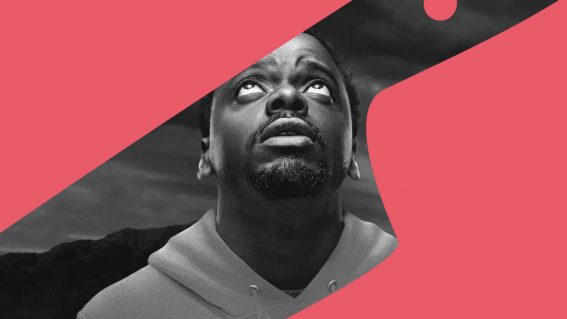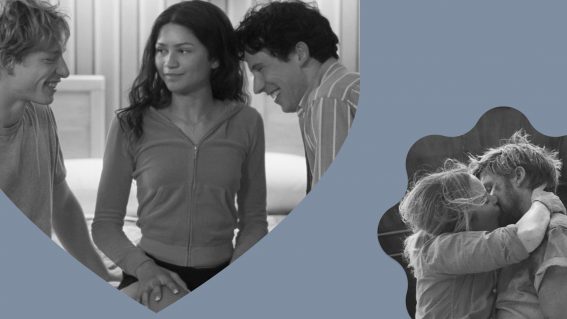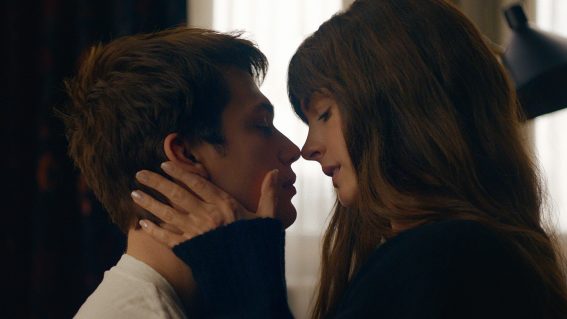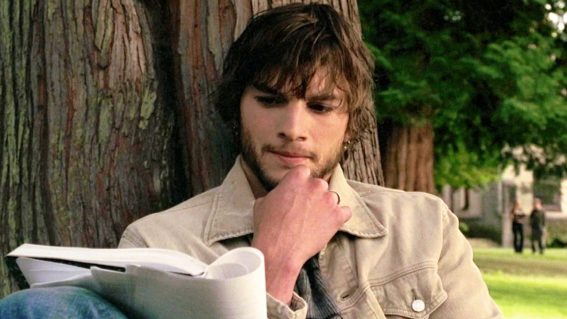We Talked to Bobby from ‘X-Men’ About Going From Films to Videogames
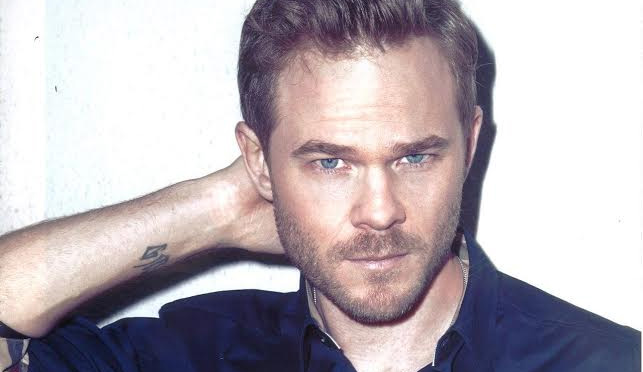
Shawn Ashmore is commonly known for his work on screen, from the early X-Men movies as Bobby/Iceman to TV series The Following as Mike Weston. His latest role, however, sees him as the lead of time-bending videogame shooter Quantum Break from Remedy (Alan Wake, Max Payne), which also has a companion TV show built in.
We got to chat to Ashmore about his role in the game/show, seeing himself die, and the brave new world of owning digital versions of yourself…
FLICKS: You’ve obviously watched yourself and heard yourself on screen. But how weird is it to play yourself?
SHAWN ASHMORE: Very strange. It feels like an out-of-body experience. If there’s a firefight in real life, I’m going to run the other way. But now I’m asked to run a little version of myself into danger, which feels really, really weird. So getting yourself killed in the game is strange. But it’s cool.
How many ways do you get killed in the game?
There’s a million ways – every variety of way. You can get shot, fall off of a building, caught in these time stutters that happen where everything in the world is frozen except for Jack. He’s been radiated by these Chronon particles at the beginning of the game, and that is what allows him to interact when the time stutters happen.
Time is ending and so time is freezing for good. But he can interact through that. There’s also this breakdown where, cars for example, or anything, they’re unstuck in time, so they’re flashing back and forth. You have to go through all these environments where cars are flying through you. So you can get hit by cars or debris, or all that kind of stuff.

This must have been really different from anything you’ve had to do, acting wise.
There are more similarities than people would expect, because I didn’t approach Jack Joyce any differently than I would of Bobby Drake from X-Men, or Mike Weston from The Following.
I wanted Jack to be a real grounded character. For me, it was the most important focus. I didn’t have to design the levels. I didn’t have to design the gameplay. I just had to make sure that Jack was an interesting character for people to experience. So [the way that I approached it] wasn’t that different.
What was different was the way that we recorded the performance. I had never done motion capture before. That was the major difference, and there’s a bit of a learning curve.
Once I had those couple days to really figure it out and practice, I started working with all the other actors and it felt sort of natural. It’s sort of a pure form of acting, because there’s no giant crew, there’s not 300 people standing around waiting for you to work. It’s really just the actors, some technicians in the volume where you’re shooting the motion capture, the director, and the script.
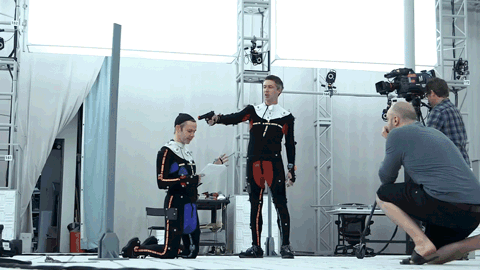
You get to spend a lot more time acting, as opposed to waiting for set ups and special effects and all that kind of stuff.
And you would have had to have done a lot of acting. Because the page count for video game scripts go into the thousands.
That’s a good point. A feature film screenplay is like maybe a hundred something pages long. Quantum Break, I didn’t do the count, but I’m sure it was like a thousand pages long. So yeah, there’s a lot more material to get through.
There’s also branching story content, so when you make a decision in the game, it unlocks your own personal version. You make choices that personalize the story you get to tell. But if you go in another direction, you’ll interact with maybe different characters completely. So you have to shoot many different varieties of the same scenes with all those branching content.
You also throw time travel into the mix, so the characters are existing in different time lines as well. They’re traveling back and forth, one of them has met each other but the other one hasn’t met them yet because they’re back from the future.
It’s also really cool to have a group of people that you know who are also playing the game and then sharing your experiences. Chances are, you’re not going to have the exact same experience, and that becomes a good discussion point.
There’s a really great thing at the end of each junction point, which is where you make the decision. It’ll show the percentage of the community in general that had your decision, and then it’ll also show the percentage of your friends that are making that decision.

Decisions can be tricky…
Are you with the majority, or are you with the minority? That’s kind of interesting.
Have you had the chance to revisit the game?
I’ve played through once and finished it, going with my gut. But I haven’t gone back to play it through and make the opposite decisions.
What did your first play-through say about you?
Actually, my wife made all the junction point decisions, because we played it through together. She made… some of the colder choices, let me put it that way.
I don’t know how to put it. She made the hard choices. So if you’re choosing between life and death, she sometimes went death.
Like, sacrifice a child to save the city?
Sort of, yeah. Not quite that cut and dried. But yes, sort of that way.
Could you give me a film director who you would just absolutely love to push towards videogame storytelling?
It’s classic, but I feel like somebody like Stephen Spielberg would be great. He tells big stories. He likes to push boundaries with technology. I still think that Jurassic Park is some of the best visual effects I’ve ever seen; it’s visual and practical. He’s got a knowledge of that.
And I know that he’s making a film right now, Ready Player One, which is basically based in a virtual reality, video game kind of world. I think that would be a no-brainer.
Also, we’re in New Zealand, why not Peter Jackson? Someone who also has been on the verge of technology and motion capture?
His capture with Andy Serkis as Gollum, and also King Kong, are some of the most interesting digital performances we’ve seen. I think he has a very good knowledge, and probably appreciation for the cutting edge of storytelling.
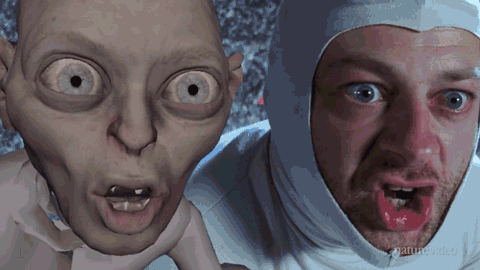
Via Nature Video YouTube Channel
Let’s flip it the other way – when do you think we’ll get a great videogame movie?
I don’t know. I think it’s the same with flipping any medium. Whether you go from a great novel to a great movie or a great comic book to a great movie. You have to change a lot of the things when you’re switching mediums. Sometimes when a video game is so great, it’s like it doesn’t need a movie necessarily.
Off the top of my head I’m just trying to think of games that have been turned into movies… I know Max Payne was turned into a movie…
‘Mortal Kombat’…
‘Mario Brothers’…
None of these I would highly recommend to anybody, honestly. Is there anything that’s good though?
…’Silent Hill’?
Silent Hill was okay. Some of the Resident Evil movies were kind of fun. But nothing that has blown me away.
Have you seen ‘The Congress’?
No. That’s the Robin Wright one? Many people have told me about it. One of my friends saw that and he’s like, “I know that you’ve been digitally captured now…” It sounds kind of terrifying.

The Congress digital capture scene…
How much would you sell yourself for?
At this point, I would not sell myself. I think maybe if you’re going to retire, then it might be something where you’re like, “Okay, I’ll sell my visual rights and whatever.”
The thing is, I’m constantly growing as a performer, and I constantly want to challenge myself. So if you were to sell yourself, you would stop being a part of that process, that growth.
You can also have Sir Ian McKellen when he was in his 20s, and then McKellen in his 40, then in his 60s… You have multiple different identities throughout your lifetime.
When I did my total digital capture at Remedy, one of the animation directors was like, “I recommend as an actor, you do this every five years. Even if you have to pay for it for yourself. Because 20 years from now, technology will be at a point where you could be 70 years old, and playing a 45 year old version of you again.”
And he’s like, “But that’s not to take away the human element, which is your performance. You would still be doing the acting. The thought process, the care, the emotion would still be you, but you could have a representation of yourself as a younger person.” So it opens up the ability to continue to play different characters.
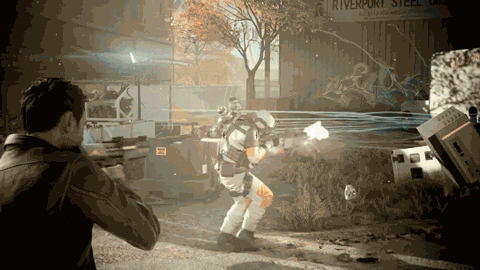
If we’re getting into a deeper level, it’s scary to me knowing that there’s this trend unfortunately for women that, once they hit a certain age, they’re less valuable as a performer. Less valuable as an actor or whatever.
It would be scary if these women were captured at a younger age, if they would be forced to continue to play that. Or not naturally age, and age gracefully, and get to play characters as they mature. And I think we have an issue in our society where women get the shit end of the stick. There’s a social stigma that we would have to get past – and hopefully we can very soon.
…are you sure you haven’t seen ‘The Congress’?
I’m just very aware of that within this industry. There’s a real imbalance for women unfortunately. And I hope that changes.
For me as an actor, as I age, I get to play more interesting characters, and that’s fun for me. I would hate to think that’s not the experience for all actors. That they get to mature, and grow, and learn, and bring that experience in their life to their characters.
It always seems like they just hand pick a few women who they “allow” to age, such as Meryl Streep and Helen Mirran.
Right. Who are also incredibly talented. Let’s not take away the fact that they’re probably some of the best actors so that’s why.
They can smell the bullshit, too.
Absolutely.



